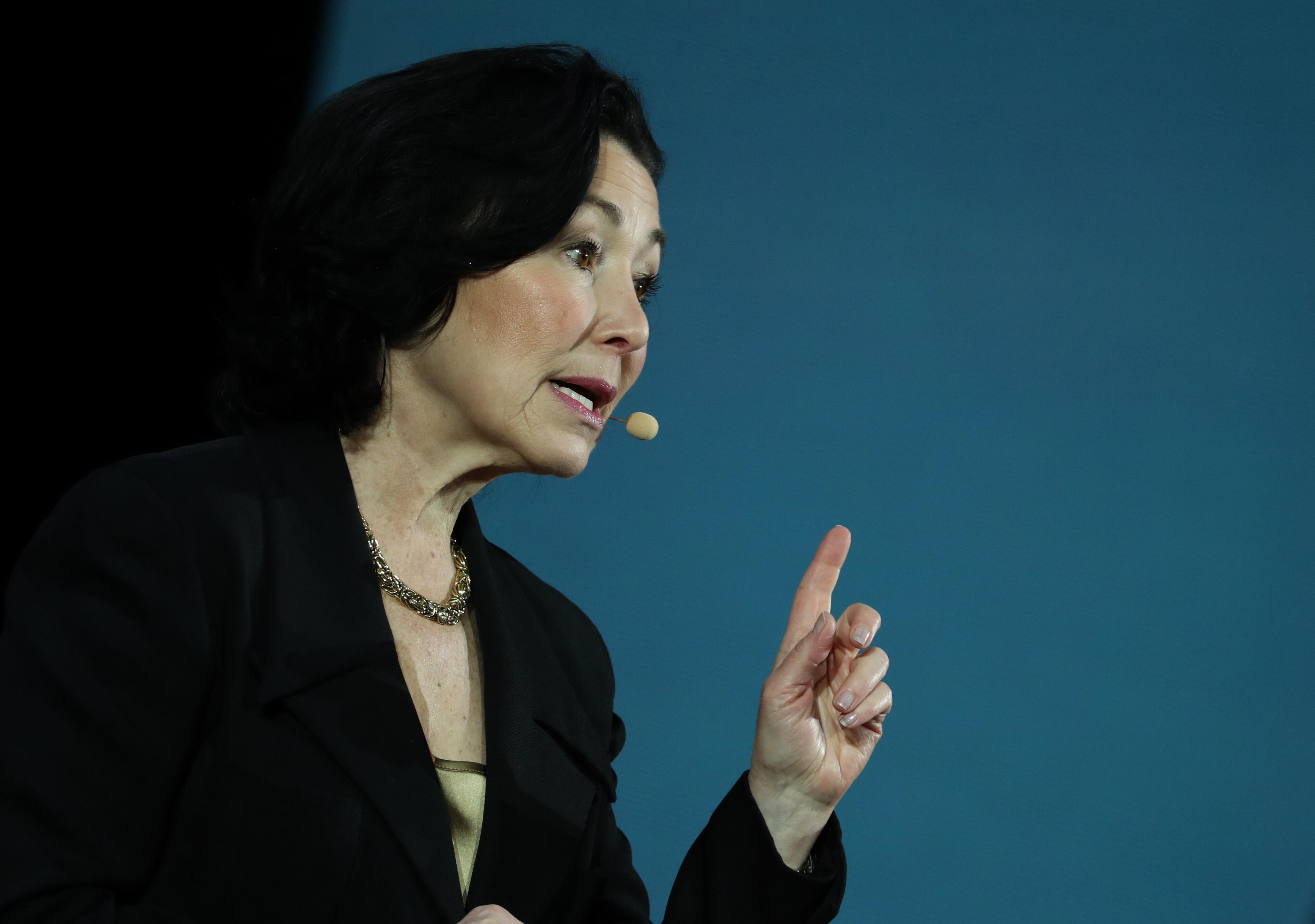Oracle’s share price slumped at the end of 2019 following a quarterly earnings report that left investors worried whether it could fulfil promises for full-year 2020 figures. Will the firm’s Q3 results offer investors hope?
Ahead of Oracle’s [ORCL] Q3 earnings report – due on 12 March – the cloud services company has had a volatile three months, the firm, and its share price, impacted not only by ongoing coronavirus panic, but the negative sentiment carried over from its December results.
Before the dramatic spread of the virus across Italy was reported on 22 February, Oracle’s share price had already dropped 2.8% since reporting its Q2 results on 12 December. The earnings call sparked fear among investors, who were uncertain the company could achieve its projected figures for 2020. Like most tech companies, it has taken a further nosedive since, dropping 9.6% between 24 February and 5 March.
9.6%
Oracle's share price drop in 2 weeks due to coronavirus
Will Oracle’s Q3 report encourage its share price to rebound?
In need of a ‘steep’ sales climb
Oracle’s Q2 revenue figures fell short of analysts’ estimates back in December, when the company reported revenue of $9.61bn versus the $9.65bn expected by analysts, according to Refinitiv. The figure also showed that revenue had grown at just 0.5% on an annualised basis in the second quarter of Oracle’s 2020 fiscal year.
The news sent Oracle’s share price down by 3% in extended trading, despite the fact its $0.90 per share figure beat the $0.88 expected.
But the news that really raised Wall Street concerns was Oracle’s reiteration that it will grow revenue faster in 2020 than the prior fiscal year in constant currency. Despite the revenue slump, CEO Safra Catz said she still expected to report double-digit earnings growth.
Some investors are now saying there needs to be a sharp sales climb toward the end of Oracle’s financial year, if they are to reach these figures. The sentiment is compounded by the company’s similarly weak Q1 results, only up 1.6% in constant currency, on top of its recent revenue fail.
Catz has also said that in Q3 she expects the company to report $0.95-$0.97 earnings per share, which is at the lower end of predictions gathered by Refinitiv, which show that analysts expect $0.97 in earnings per share for the quarter.
Following these figures, a list of funds voiced their concerns to Bloomberg, saying the company may not be able to meet the ambitious targets it has set.
Raymond James analyst Michael Turits told Bloomberg that for Oracle to see fiscal 2020 constant-currency acceleration following the misses in Q2 sales figures “would mean an extremely steep back half ramp” for the company.
Instead, the analyst believes that fiscal 2020 revenue growth will decelerate to 2.2% on constant currency basis.
2.2%
Predicted deceleration of 2020 fiscal revenue growth
Elsewhere, Deutsche Bank’s Karl Keirstead said the Q3 forecast for just 1-3% constant-currency sales growth implies “a huge growth acceleration” in the fourth quarter “against a very tough compare and in a tougher environment”.
These worries arrived back in December, prior to the impact the coronavirus has had on global markets, creating an even tougher environment for Oracle to operate in.
What’s the good news?
Speaking to Bloomberg, Wedbush analyst Steve Koenig said that Oracle’s miss was due to database license headwinds incurred in Q1 after a tech sales restructure, which means that they are unlikely to reoccur as the year goes on.
Management has reason to be upbeat for second-half results, according to Koenig, as large autonomous database transactions get recognised in this fiscal year, which could add to its figures down the line.
| Market Cap | $155.828bn |
| PE ratio (TTM) | 15.40 |
| EPS (TTM) | 3.15 |
| Operating Margin (TTM) | 35.48% |
Oracle share price vitals, Yahoo Finance, 11 March 2020
Despite this, Koenig adds that “longer-term, these prospects seem promising, but we suspect that any uptick in FY20 year-end tech segment performance would be mostly seasonality (much like in FY19), and a secular upturn in ORCL’s tech segment is likely many more quarters in the offing.”
Oracle may also receive a boost following competitor Salesforce [CRM] raising concerns among Wall Street players on 25 February, when co-chief executive officer Keith Block announced that he is set to depart.
Disclaimer Past performance is not a reliable indicator of future results.
CMC Markets is an execution-only service provider. The material (whether or not it states any opinions) is for general information purposes only, and does not take into account your personal circumstances or objectives. Nothing in this material is (or should be considered to be) financial, investment or other advice on which reliance should be placed. No opinion given in the material constitutes a recommendation by CMC Markets or the author that any particular investment, security, transaction or investment strategy is suitable for any specific person.
The material has not been prepared in accordance with legal requirements designed to promote the independence of investment research. Although we are not specifically prevented from dealing before providing this material, we do not seek to take advantage of the material prior to its dissemination.
CMC Markets does not endorse or offer opinion on the trading strategies used by the author. Their trading strategies do not guarantee any return and CMC Markets shall not be held responsible for any loss that you may incur, either directly or indirectly, arising from any investment based on any information contained herein.
*Tax treatment depends on individual circumstances and can change or may differ in a jurisdiction other than the UK.
Continue reading for FREE
- Includes free newsletter updates, unsubscribe anytime. Privacy policy





